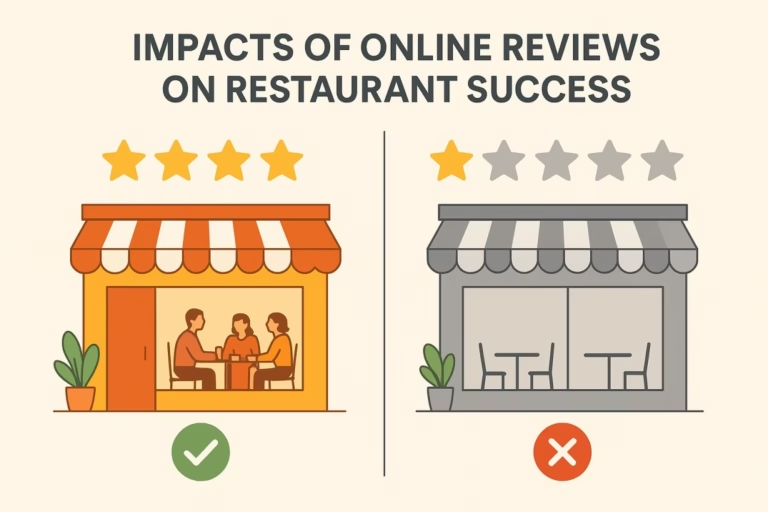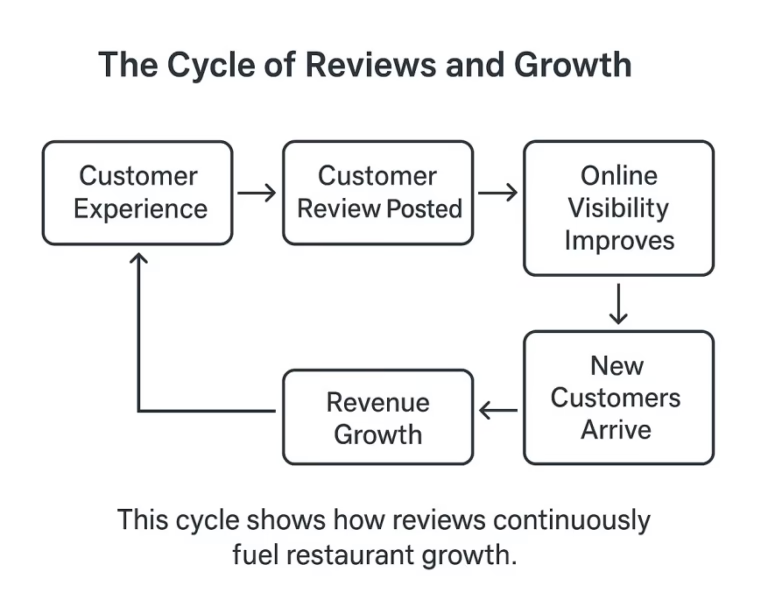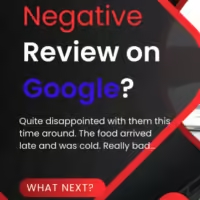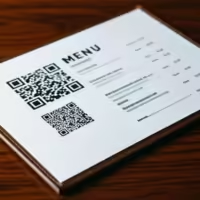
Posted by Reviewtale
- Sep 9, 2025
- 297
- 0
Customer Reviews and Restaurant Success: 5 Ways to Boost Profit

Introduction
The relationship between customer reviews and restaurant success has become increasingly vital in today’s food and beverage industry. Diners no longer rely solely on advertisements, billboards, or even word-of-mouth from friends. But increasingly rely on consumer reviews found on platforms like Google Maps, TripAdvisor, and Yelp, making these online opinions a primary factor in shaping first impressions, influencing purchasing choices, and building long-term loyalty.
Digital Word-of-Mouth Transformation
Unlike traditional advertising, customer reviews now act as digital word-of-mouth, conveying the authentic experiences and satisfaction of real guests. This shift means restaurants must pay close attention to every review, as a single rating change can significantly impact visibility, reputation, and even revenue—studies show that a one-star rating increase can boost revenue by up to 9%.
Strategic Importance for Owners
For restaurant owners, understanding the fundamental relationship between customer reviews and restaurant success is essential. Reviews directly affect reputation management, revenue growth, and SEO rankings, determining whether a restaurant stands out or is overshadowed in a competitive marketplace. Embracing proactive review management has become vital for thriving rather than merely surviving in today’s digital-driven hospitality landscape.
The Importance of Online Reviews for Restaurants
When diners consider a restaurant, the first step is often checking its online ratings. In fact, more than 85% of customers say they trust online reviews as much as personal recommendations. This means that customer reviews and restaurant success are tied together from the very first interaction.
Why Reviews Matter More Than Ever
- First Impressions: Customers often search “best restaurants near me,” and the reviews they see in Google results heavily influence where they dine.
- Authenticity: Marketing materials highlight the best aspects of a restaurant, but reviews reflect unfiltered, real-world experiences.
- Credibility: A consistent stream of positive feedback signals reliability.
- Competitive Advantage: Even if two restaurants offer similar cuisine, the one with stronger reviews almost always wins more customers.
This makes the importance of online reviews for restaurants not just optional but a cornerstone of digital strategy.
The Effect of Online Ratings on Restaurant Revenue
The undeniable connection between customer reviews and restaurant success is clear in financial outcomes—reviews drive revenue and growth for food businesses. Studies from Harvard Business School and industry research indicate that a one-star increase in Yelp or Google ratings can lead to a 5–9% revenue increase.
Revenue Breakdown by Rating Level
- Above 4 Stars: Restaurants enjoy repeat business, customer loyalty, and higher willingness to pay. Many diners consider 4+ ratings as the “gold standard.”
- 3–4 Stars: Indicates potential but leaves customers cautious. Diners may give it a chance, but reviews often highlight areas that need improvement.
- Below 3 Stars: Represents major challenges. Customers perceive low-rated restaurants as risky, leading to lower foot traffic and declining delivery orders.
The effect of online ratings on restaurant revenue shows that reviews are more than just reputation — they are a measurable financial driver.
How Customer Feedback Impacts Restaurant Business
When analyzing the link between customer reviews and restaurant success, it becomes clear that feedback extends far beyond basic revenue generation. Reviews influence emotions, perceptions, and long-term customer behavior. They act as a bridge of trust between potential diners and restaurants, often determining whether someone chooses one venue over another.
- Social Proof: Modern diners are heavily influenced by collective opinions. When a restaurant accumulates hundreds of positive customer reviews, it sends a signal of reliability and quality. This social validation reassures new visitors that they are making the right choice, reducing the perceived risk of trying an unfamiliar place.
- Authenticity Factor: Unlike traditional advertisements, which can feel polished or exaggerated, customer reviews are seen as raw, unfiltered experiences. This perceived authenticity carries significant weight. People believe real diners more than marketing slogans, which makes reviews one of the most persuasive factors in shaping opinions.
- Decision Simplification: Reviews simplify the dining decision for individuals who do not have the time or local knowledge to explore every option. Tourists, working professionals, and first-time visitors often rely on reviews to quickly shortlist restaurants that fit their expectations, making feedback an integral part of their decision-making process.
- Customer Loyalty: Feedback does not only attract new customers but also strengthens loyalty among existing ones. When a restaurant acknowledges or acts upon customer reviews, it signals respect and attentiveness. Diners who feel valued are not only more likely to return but also to share repeat positive experiences, creating a cycle of trust and retention.
This reinforces that customer reviews and restaurant success are not only tied to measurable metrics such as ratings or footfall but are deeply rooted in human psychology. Trust, authenticity, and acknowledgment of feedback are what ultimately transform a one-time guest into a loyal patron.
For more insights into building trust, see our guide on Restaurant Makeover: Improving Reviews and Ratings.
Restaurant Reputation Management Strategies
In today’s competitive dining landscape, reputation management is no longer just an optional effort—it is a necessity. Restaurants that actively engage with reviews build stronger credibility, enhance customer trust, and create resilience in crowded markets. Effective reputation management directly shapes brand perception and plays a decisive role in the long-term connection between customer reviews and restaurant success.
Proven Strategies for Reputation Management
- Encourage Reviews Actively: The more reviews a restaurant gathers, the stronger its credibility appears online. Simple tools like QR codes on receipts, menus, or delivery boxes can make leaving feedback effortless. This not only generates more reviews but also provides diverse perspectives to help future customers make informed choices.
- Timely Responses: Engaging with reviews, both good and bad, shows that the restaurant values its customers. Thanking diners for positive feedback builds goodwill, while addressing negative reviews with empathy can turn a critical experience into an opportunity for improvement and trust-building. Prompt, thoughtful responses set the foundation for customer loyalty.
- Trend Analysis: Reviews are more than opinions; they are insights into recurring strengths and weaknesses. By tracking repeated mentions of service delays, food quality, or ambiance issues, restaurants can identify underlying problems and resolve them before they affect their wider reputation. This proactive approach demonstrates commitment to quality.
- Leverage Social Media: Positive customer reviews should not remain hidden on review platforms. Highlighting them on Instagram, Facebook, and Threads doubles their impact, turning genuine customer voices into powerful marketing assets. Sharing reviews also amplifies authenticity, which appeals to new customers seeking reassurance.
- Train Staff: Employees play a direct role in shaping how guests perceive the restaurant. Well-trained staff members create experiences that naturally lead to positive feedback. Empowered employees understand that every interaction can influence reviews, making them a vital part of reputation management.
Learn more about these strategies in our Ultimate Guide to Online Reputation Management.
The Role of Google Reviews in Restaurant Success
Google’s dominance in local search has made its review system one of the most influential factors in dining decisions. When potential diners search for phrases like “best pizza near me” or “family-friendly restaurant,” they typically rely on what appears at the top of Google Maps results. This means Google Reviews now carry unmatched weight in determining both visibility and trustworthiness for restaurants.
How Google Reviews Influence Success
- Higher Visibility: Google’s algorithm favours restaurants with frequent, authentic reviews. Restaurants that consistently receive customer feedback are more likely to appear higher in local search results, positioning them directly in front of diners ready to eat.
- Improved Click-Through Rates (CTR): Star ratings and snippets of customer feedback in Google search results immediately capture attention. A restaurant with strong ratings stands out against competitors, making customers far more likely to click and learn more.
- Trust Building: Because Google reviews are integrated into search and maps, they carry a sense of reliability. Diners see them as unbiased and credible, which makes the restaurant’s reputation more powerful than any paid advertisement.
- Mobile Relevance: Tourists, office-goers, and commuters increasingly use Google Maps as their primary tool for discovering dining options. Reviews right at their fingertips influence quick dining decisions, making them a cornerstone of on-the-go restaurant marketing.
This is why the role of Google reviews in restaurant success outweighs that of any other platform. By embracing review management specifically on Google—encouraging feedback, responding professionally, and showcasing positive experiences—restaurants can strengthen both their visibility and their credibility, ensuring long-term growth in an intensely competitive market.
How to Handle Negative Customer Reviews
Negative reviews are inevitable in the restaurant business, but they don’t have to damage a brand. In fact, the way a restaurant responds often becomes a defining factor in its reputation. Smart, professional handling can turn criticism into an opportunity to prove commitment to customer satisfaction and improve trust—reinforcing the link between customer reviews and restaurant success.
Steps for Smart Review Handling
Step 1: Stay Calm
The first rule is to never respond emotionally or defensively. Heated replies may escalate the situation and portray the restaurant negatively to potential diners. Maintaining a professional, composed tone ensures the brand image remains intact.
Step 2: Acknowledge Issues
Customers want to feel heard. By acknowledging their experience—whether it’s about food quality, service delay, or atmosphere—you show empathy. A simple recognition that their concern is valid can lower tension and set the stage for resolution.
Step 3: Offer Practical Solutions
A genuine solution often transforms a negative experience into a positive one. Offer options like replacing the meal, providing a discount, or inviting the customer back for a better experience. This demonstrates that the restaurant values improvement and customer satisfaction over short-term profit.
Step 4: Be Transparent and Follow Up
Address concerns publicly to show accountability, but also extend a private follow-up for more details or compensation. This dual approach builds trust among potential customers reading the exchange while giving the dissatisfied diner personal attention.
Step 5: Learn and Improve
Negative reviews shouldn’t be dismissed once resolved. Instead, treat them as learning opportunities. If repeated complaints appear, they point to operational issues that need fixing. By acting on this feedback, restaurants ensure long-term success and fewer complaints in the future.
Handled well, many dissatisfied customers are willing to change their stance, sometimes even updating their review after seeing the restaurant’s genuine concern. This proves that responding constructively not only reduces the damage but strengthens the powerful relationship between customer reviews and restaurant success.
For more insights see our article on 5 best ways to handle negative reviews.
Improving Local SEO with Restaurant Reviews
For modern restaurants, visibility online is just as important as visibility on the street. Search engines increasingly prioritize businesses that generate authentic, consistent customer feedback. Every review posted by a diner becomes fresh content for the restaurant’s listing, signaling activity, relevance, and trustworthiness to search algorithms. This direct connection shows why customer reviews are not just about reputation, but also a key driver of local search engine optimization, ultimately reinforcing the link between customer reviews and restaurant success.
SEO Benefits of Customer Reviews
- Boosts Local Rankings: Frequent, genuine reviews improve a restaurant’s chances of appearing in local searches, especially “restaurants near me.” Search engines interpret these reviews as proof of active customer engagement, pushing restaurants higher in results.
- Increases Engagement: Review-heavy listings capture more attention. Customers spend more time reading through detailed experiences, which lowers bounce rates and signals to search engines that the listing is valuable.
- Improves Click-Through Rates: Visible star ratings and positive comments encourage users to click on a reviewed restaurant over one with few or no reviews. Higher click-through rates boost SEO performance, bringing more organic traffic.
- Strengthens Online Presence: A steady flow of reviews across different platforms—Google, Zomato, TripAdvisor, and Yelp—creates multiple digital signals that establish credibility. The more review activity associated with a restaurant, the more likely search engines are to trust and recommend it to potential diners.
By integrating reviews into a structured digital marketing strategy, restaurants not only enhance their local SEO but also create stronger visibility and credibility online. This demonstrates once again that customer reviews and restaurant success are intertwined, driving footfall, rankings, and long-term growth.
For example, see our Best Cafes to Work From in Kolkata: 2025 Guide to understand how location-based visibility boosts traffic.

This growth cycle shows how customer reviews and restaurant success fuel each other. Every customer experience generates feedback that enhances visibility, draws new customers, and increases revenue, which in turn supports better service.
Best Ways to Encourage Diners to Leave Reviews
For restaurants, collecting reviews is not a bonus—it’s a critical part of building reputation and visibility. While many satisfied customers are open to sharing their experiences, they often just need a small nudge or convenient prompt. With the right approach, encouraging diners to leave reviews becomes a natural extension of their positive dining experience.
Effective Techniques
- Polite Ask: Train your staff to politely request feedback at the end of a meal. A simple, genuine ask from a server who has built rapport often motivates diners to share their thoughts.
- Loyalty Incentives: Provide small rewards such as loyalty points, discounts, or freebies on the next visit in exchange for leaving a review. Even minimal incentives significantly increase participation while reinforcing customer loyalty.
- Clear Prompts: Use QR codes on menus, bills, or delivery boxes to make the reviewing process effortless. When customers can leave feedback in just a few taps, they are more likely to follow through.
- Digital Follow-Ups: Send brief, friendly reminders through email, WhatsApp, or SMS after the dining experience. Personalized messages that thank the customer and invite them to share feedback can generate a high response rate.
By consistently applying these techniques, restaurants create a steady stream of authentic reviews that enhance their online visibility. These reviews not only attract new diners but also reinforce credibility, proving that customer reviews and restaurant success are deeply connected.
For more on customer engagement, explore our article on Strategies to Attract and Retain Talent in the Food and Beverage Industry.
Conclusion: Reviews as the Foundation of Restaurant Success
In the modern dining industry, customer reviews have evolved from simple word-of-mouth to the central driver of restaurant growth. They shape reputation, establish trust, impact local SEO visibility, and influence purchasing decisions in real time. From attracting new diners through authentic feedback to retaining loyal guests by acknowledging and acting on criticism, reviews now serve as the foundation of sustainable success.
Restaurants that actively embrace reputation management strategies—encouraging feedback, showcasing reviews across platforms, and addressing negative comments with professionalism—position themselves as trustworthy and customer-focused. This not only strengthens brand credibility but also fuels long-term revenue growth, strengthened visibility in “near me” searches, and consistent guest engagement.
Ultimately, customer reviews and restaurant success are inseparably linked. Reviews are not just reactionary notes from diners; they are a restaurant’s most powerful digital marketing asset. By listening, responding, and integrating reviews into their business strategy, restaurants build more than visibility—they build lasting credibility, stronger customer relationships, and resilience in an increasingly competitive marketplace.
For tailored strategies, visit our Review Tale Services and learn how we help restaurants master reviews for growth.
FAQs
Why are customer reviews important for restaurants?
Customer reviews are crucial because they influence reputation, build trust, and directly impact visibility. Positive reviews attract more customers and drive revenue growth.
How do online reviews affect restaurant revenue?
Online reviews directly affect revenue. A higher star rating improves bookings, delivery orders, and customer loyalty, while poor ratings reduce visibility and earnings.
What are the best ways to encourage diners to leave reviews?
Restaurants can encourage reviews by using QR codes, offering incentives, following up digitally, and simply asking customers at the right moment.
How should restaurants handle negative reviews?
Negative reviews should be handled with professionalism: acknowledge the issue, offer solutions, and demonstrate genuine care. This often turns dissatisfied customers into loyal patrons.
Do reviews help improve local SEO for restaurants?
Yes. Frequent, authentic reviews help restaurants rank higher in local “near me” searches, improve click-through rates, and enhance overall online presence.
Recommended Posts
- Feb 1, 2025
- 484 read
How Behind-the-Scenes Food Content Boosts Visibility & Engagement Table of ContentsIntroductionThe Power...
Read Article- Jan 29, 2025
- 474 read
7 Effective Ways to Use Customer Reviews to Build Trust Table of...
Read Article- Jan 26, 2025
- 1021 read
What is Thali? A Traditional Indian Meal on One Plate India, a...
Read Article- Jan 19, 2025
- 911 read
The Story Behind Your Business: How Sharing It Attracts Customers & Builds...
Read Article- Jan 18, 2025
- 792 read
Unforgettable Dining Experiences: How a Unique Selling Proposition Can Elevate Your Restaurant...
Read Article- Jan 16, 2025
- 1525 read
What Unique Aspects of Your Restaurant, Cloud Kitchen, or Café Set You...
Read Article- Jan 12, 2025
- 796 read
How to Remove Negative Reviews From Google? Negative reviews on Google can...
Read Article- Jan 3, 2025
- 482 read
Table of Contents IntroductionThe Origins of Fast FoodNutritional Myths and RealitiesConvenience vs....
Read Article- Dec 25, 2024
- 509 read
6 Essential Steps for Restaurants: Masterfully Choose the Right Target Customers Choosing...
Read Article- Dec 5, 2024
- 1005 read
10 Powerful Tips for Innovative Menu Design: Trends You Need to Know...
Read Article- Nov 16, 2024
- 443 read
Tips and Tricks to Optimize Your Restaurant Profile: Improve Your Online Visibility...
Read Article










